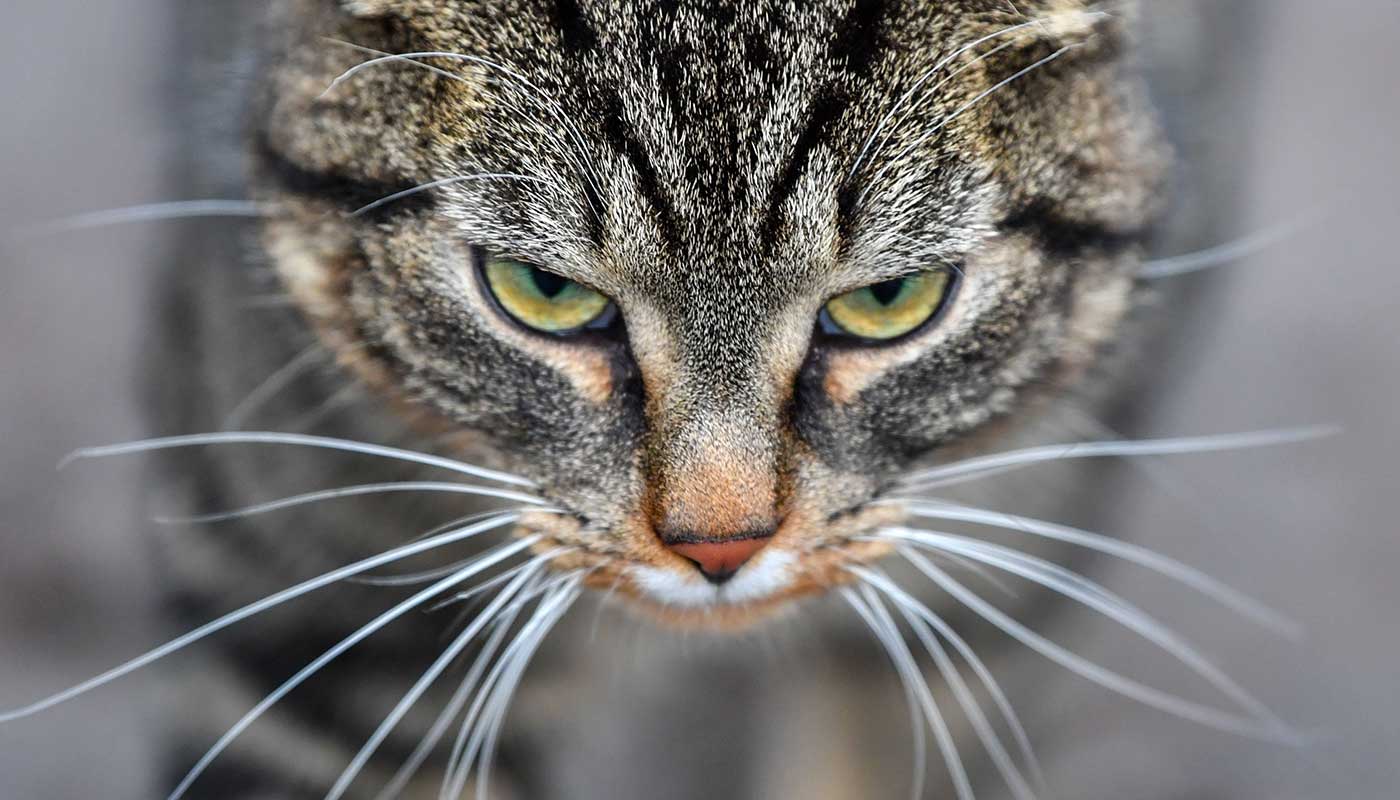‘In the modern world, the workaholic chino-wearers march ahead’
Your digest of analysis and commentary from the British and international press

- 1. If you want to get ahead, ditch your creativity
- 2. The Turner Prize has become an anti-artistic, politicised basket-case
- 3. The ‘third way’ may have worked for New Labour, but it is impossible now
- 4. Only scientists and voters can change the politics of catastrophe
- 5. Boris’s animal rights laws could come back to bite him
A free daily email with the biggest news stories of the day – and the best features from TheWeek.com
You are now subscribed
Your newsletter sign-up was successful
1. If you want to get ahead, ditch your creativity
James Marriott in The Times
on conformity
“According to the most recent edition of the Financial Times’s How to Spend It supplement, £127,000 will buy you the ‘ultimate’ Steinway self-playing grand piano,” writes James Marriott in The Times. “Isn’t this weird?” he says, in buying the piano it “draws attention to a hobby you don’t have”. It says “my owner is slightly more boring than you might have supposed. My theory is that this is partly the point,” he continues. In the modern world “the ability to sublimate your personality, your eccentricities, your creative fantasies to your work is rewarded. The boring succeed and so being boring has become a kind of status symbol.” Unfortunately, “the cost of not conforming is higher than ever, financially and personally”, writes Marriott, so “the hobbyless, the dull, the impeccably CV-ed, the workaholic chino-wearers march ahead.”
The Week
Escape your echo chamber. Get the facts behind the news, plus analysis from multiple perspectives.

Sign up for The Week's Free Newsletters
From our morning news briefing to a weekly Good News Newsletter, get the best of The Week delivered directly to your inbox.
From our morning news briefing to a weekly Good News Newsletter, get the best of The Week delivered directly to your inbox.
2. The Turner Prize has become an anti-artistic, politicised basket-case
Ben Lawrence in The Telegraph
on individual merit
“Is the Turner Prize the biggest basket case in British culture?” asks Ben Lawrence in The Telegraph. The prize has announced its “lastest wheeze”, to make every nominee on the 2021 shortlist an artist collective. “Artistic individualism, be damned! What did Steve McQueen or Damien Hirst bring to our artistic landscape, anyway?” It’s clear, that the prize judges, “who no doubt feel they are being terribly democratic and cutting-edge, have apparently shot themselves in the foot”, writes Lawrence. “A problem with getting involved with collectives is that you’re dealing with multiple voices – even if they’re ostensibly united – and they’re always going to find something to complain about.” Anyway, the best artists have always “alas, been selfish individuals who wouldn’t be deterred from their chosen path. Would Les Demoiselles d’Avignon (1907) have been so dazzling had Picasso formed a collective with sex workers from turn-of-the-century Barcelona?”
A free daily email with the biggest news stories of the day – and the best features from TheWeek.com
3. The ‘third way’ may have worked for New Labour, but it is impossible now
Joe Guinan and Martin O'Neill in The Guardian
on Blairism
“For Labour, the future simply isn’t what it used to be,” write Joe Guinan and Martin O’Neill in The Guardian. The party is now even further from power than it was before the 2019 election. “In moments of defeat, there is a tendency to look back at what has worked in the past and assume it could be repeated again in the future.” The “third-way” approach of New Labour under Tony Blair brought remarkable electoral success 20 years ago, but it is now “economically unsuited to the present moment” and “unrepeatable in political terms”. Across the Atlantic, another veteran of third-way politics, Joe Biden, has “shifted his economic position in response to the demands of the moment, working constructively with the left of his party rather than marginalising it”, they continue. “If the Democrats are showing that they are not stuck in the past, there is no reason why the Labour party should be either.”
4. Only scientists and voters can change the politics of catastrophe
John Thornhill in the Financial Times
on failures of governance
“A Covid-19-style pandemic was both predictable and preventable,” say experts. That it has now unfolded as a global disaster is “due to a failure of governance and the lack of a co-ordinated international response”, writes John Thornhill in the Financial Times. “What is most unnerving about this failure is that humanity will soon face even bigger threats. The risks of environmental destruction, nuclear annihilation, cyberwarfare, bioterrorism and rogue artificial intelligence are easy to foresee and horrifying to contemplate,” he continues. But, “at least some smart researchers are on humanity’s case”, adding that “we should invest little hope in political leaders tackling these risks on their own initiative”. This is because “distracted politicians are always likely to delay and defer to ‘realist’ arguments unless ‘idealist’ scientific experts empowered by civil society can convince them otherwise”.
5. Boris’s animal rights laws could come back to bite him
Andrew Tettenborn in The Spectator
on a racing certainty
One of the most “bizarre” laws included in a raft of new measures announced in the Queen’s Speech this week is one “requiring government to accept that animals are sentient and feel pain and angst like the rest of us”. “To most of us (and probably to Boris) this initially looks innocent enough,” says Andrew Tettenborn in The Spectator. “True, it is ultimately quixotic: animals either feel distress or they don’t, and what the law says about it makes no difference whatever.” However, “such a law would not be nearly as innocuous as it looks.” Animal rights groups “are well-funded, argumentative, and litigious,” says Tettenborn. “Whatever form any legislation took – and the details are still unclear – it is a racing certainty that they would take full advantage of it to exert maximum pressure on the government to conform to their demands.”
-
 Quentin Deranque: a student’s death energizes the French far right
Quentin Deranque: a student’s death energizes the French far rightIN THE SPOTLIGHT Reactions to the violent killing of an ultra-conservative activist offer a glimpse at the culture wars roiling France ahead of next year’s elections.
-
 Secured vs. unsecured loans: how do they differ and which is better?
Secured vs. unsecured loans: how do they differ and which is better?the explainer They are distinguished by the level of risk and the inclusion of collateral
-
 ‘States that set ambitious climate targets are already feeling the tension’
‘States that set ambitious climate targets are already feeling the tension’Instant Opinion Opinion, comment and editorials of the day
-
 New app tells you when's the best time for a toilet break during a film
New app tells you when's the best time for a toilet break during a filmTall Tales And other stories from the stranger side of life
-
 ‘Irony’ as Zoom calls staff back to office
‘Irony’ as Zoom calls staff back to officefeature And other stories from the stranger side of life
-
 The U.S. veterinarian shortage crisis
The U.S. veterinarian shortage crisisSpeed Read With an anticipated shortage of 15,000 vets by 2030, it will be harder to get care for pets
-
 Boris Johnson shocks UK by resigning from Parliament
Boris Johnson shocks UK by resigning from ParliamentSpeed Read
-
 Company teaches mask-wearers to smile again
Company teaches mask-wearers to smile againfeature And other stories from the stranger side of life
-
 Bees delay flight for three hours
Bees delay flight for three hoursfeature And other stories from the stranger side of life
-
 Global happiness has been 'remarkably resilient' over the past three years
Global happiness has been 'remarkably resilient' over the past three yearsfeature
-
 Ministers considered killing all cats during pandemic
Ministers considered killing all cats during pandemicfeature And other stories from the stranger side of life